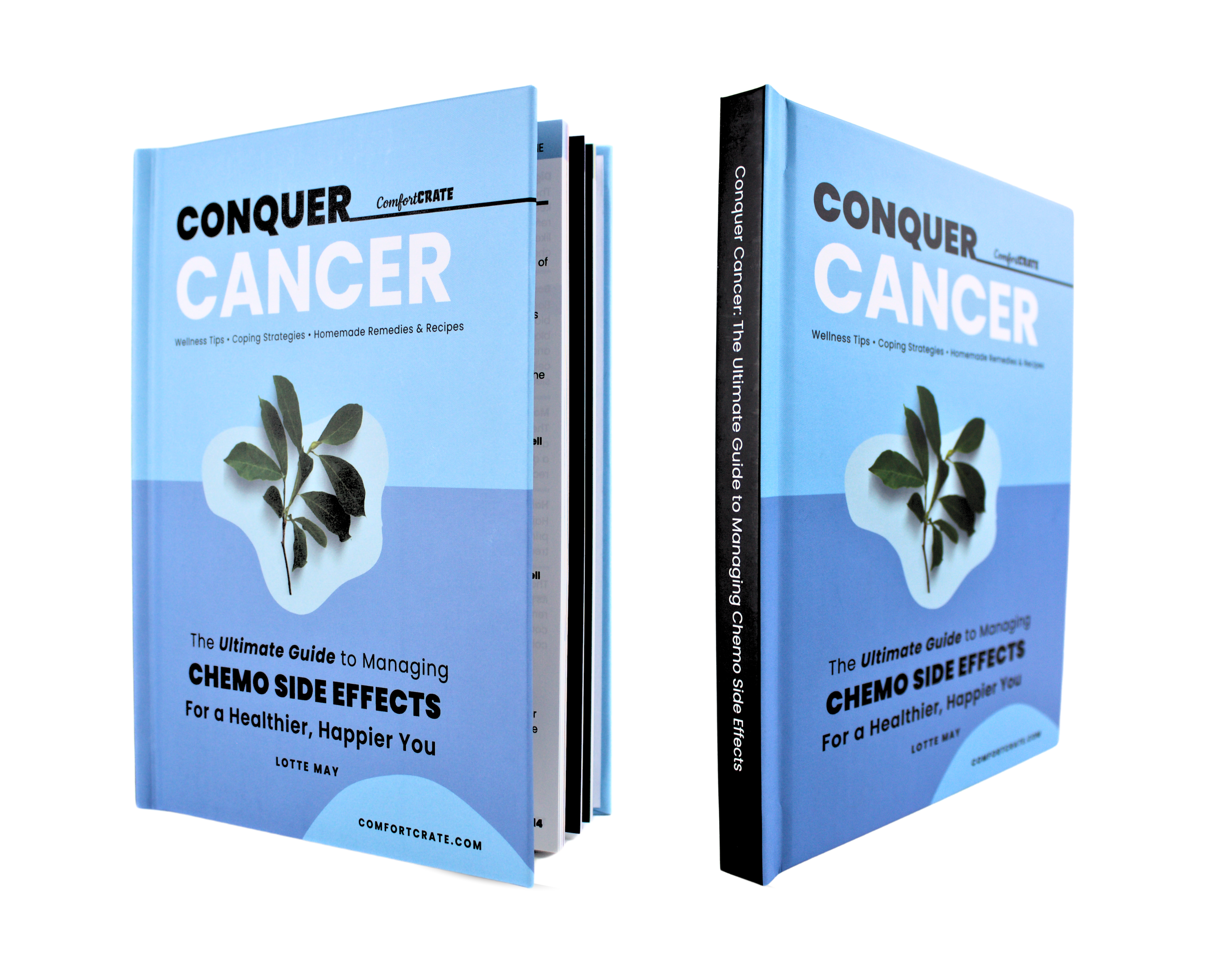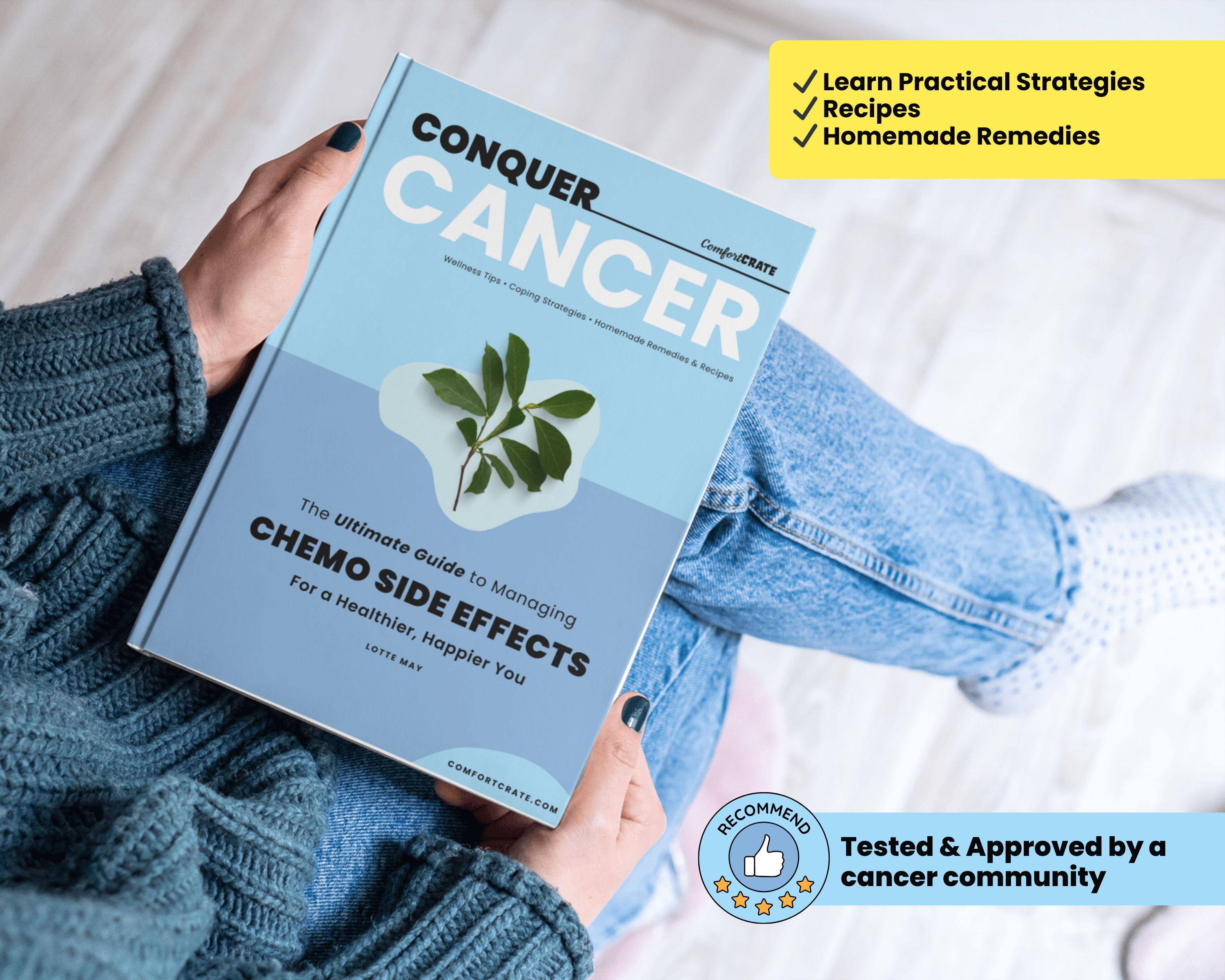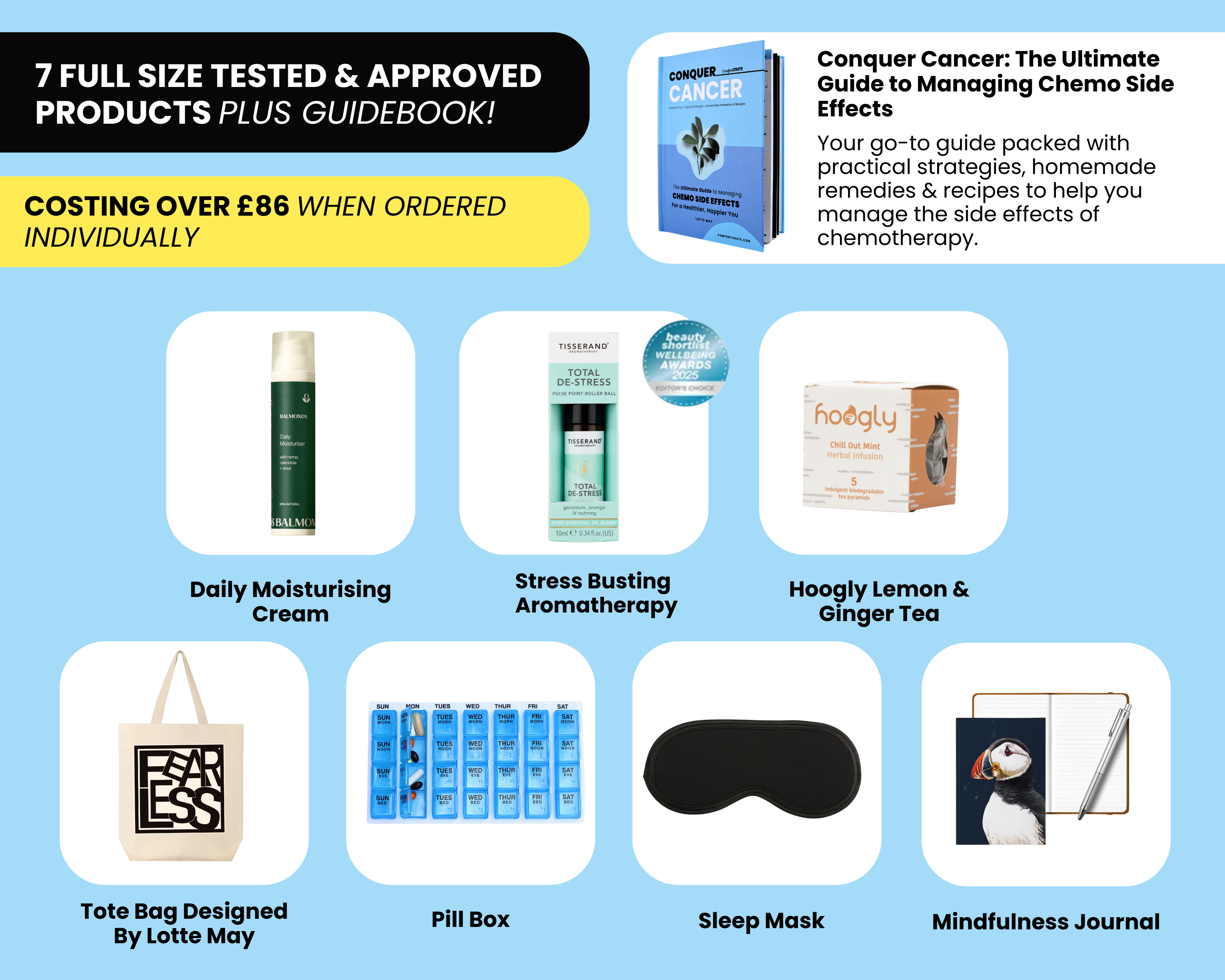
Chemotherapy Induced Nausea and Vomiting: Causes and Nausea Treatment
Why Chemo Makes You Sick | How Long Does Nausea Last After Chemo? | Chemotherapy Drugs That Cause Nausea | How to Manage Nausea | How to Combat Nausea
Why Chemo Makes You Sick
The reasons why cancer drugs cause sickness are complex. However, we know that some processes in the brain, spinal cord, stomach, and small bowel can cause nausea. These processes involve strong drugs that your body sees as foreigners. This sets off warning signals in your brain and digestive system, creating chemicals that make you queasy.
The warning signals affect a part of the brain called the vomiting centre, which controls nausea and vomiting. Different things can stimulate the vomiting centre and cause you to feel sick.
It may be stimulated by:
- Nerves in the gut (stomach)
- Another part of the brain called the chemoreceptor trigger zone (CTZ)
- The inner ear, which is caused by body motion
- Our senses – for example, taste, smell, and pain
- Our emotions – for example, scared or nervous
How Long Does Nausea Last After Chemo?
Not all chemotherapy drugs make you sick. Depending on certain factors, chemo nausea generally starts a few minutes to several hours after having the drug and lasts for a few days to a week. Nausea symptoms can be mild or severe. The following factors could increase your likelihood of experiencing nausea, but everyone responds differently to treatment.
You are more likely to feel sick if you:
- You're a woman.
- You've experienced nausea and vomiting with previous treatments, or you have a history of motion sickness.
- You have a history of drinking little or no alcohol.
- You experienced morning sickness during pregnancy.
- You're younger than 50.
- You have a high level of anxiety.
- You are prone to vomiting when you're sick.
Mild nausea and vomiting can be unpleasant, but it won't harm your health. On the other hand, vomiting a lot can cause health problems, such as dehydration, weight loss, and fatigue. Feeling nauseous or vomiting, regardless of how mild it is, should always be reported to your doctor. This is so they can monitor any health problems that may occur and help find the right anti-sickness medicine for you.
Chemotherapy Drugs That Cause Nausea
Drugs that can cause sickness are listed below, but remember everyone reacts differently to each treatment.
- Chemotherapy drugs
- Targeted cancer drugs
- Immunotherapy
- Hormone therapies
- Bisphosphonates
- Painkillers
How to Manage Nausea
Starting treatment and experiencing side effects can be intimidating. However, by asking the right questions, you will learn what you need to know and how to deal with any situation you may face.
- Is this cancer treatment likely to cause nausea and vomiting? If so, when could those side effects start?
- Is there a way to prevent these side effects of cancer treatment?
- Who should I tell if I start experiencing nausea or vomiting?
- How can my nausea be relieved if it starts?
- Do you think certain anti-nausea medicines will work better for me? Why?
- What are signs that nausea and vomiting are affecting my hydration or nutrition?
- Should I tell you right away if my anti-sickness medicine is not relieving my symptoms?
- Do these recommended anti-sickness medicines have any side effects I should know about?
How to Combat Nausea
Many health concerns can be caused by nausea and vomiting, making cancer treatment and side effects even more difficult. You can prevent health concerns from developing by tracking your symptoms every day.
Start by simply creating a table or using a calendar. To make this quick and easy, you can use my number system below. Make sure you write down how many times you threw up, if you were able to eat and drink, and if you went to treatment that day.
| Nausea Level | Food & Drink | Treatment day? | Notes | |
|---|---|---|---|---|
| Mon | 1 | 1 | ||
| Tue | 2 - V | 3 | Treatment day | Particular foods are making me feel ill. |
| Wed | 2 | 3 | ||
| Thur | 3 - V | |||
| Fri | ||||
| Sat | ||||
| Sun |
Number Systems
1 - No nausea, 2-Mild nausea, 3 - Moderate nausea, 4 - Severe nausea, 5 - Extreme nausea
Vomiting
V for if you have thrown up
Food & Drink
1 - Eating & drinking well, 2 - Some struggle but able to eat & drink small amounts, 3 - Struggling to eat and drink, 4 - Can not eat or drink anything.
For more insights and support, explore additional resources by visiting Comfort Crate's comprehensive guide. or read how to make a fatigue diary - 'How to create a fatigue diary'











Leave a comment
This site is protected by hCaptcha and the hCaptcha Privacy Policy and Terms of Service apply.